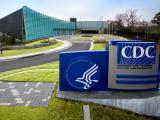Sep 24, 2010 (CIDRAP News) – As some of the key provisions of the Obama administration's healthcare reform law took effect this week, Health and Human Services (HHS) Secretary Kathleen Sebelius today announced details of a public health funding component of the law that includes resources to help prevent and manage disease outbreaks.
The nearly $100 million in grants that Sebelius announced involve the law's Prevention and Public Health Fund, which are designed to help states and localities support a host of critical public health programs such as HIV prevention and testing, tobacco cessation efforts, and obesity prevention, according to an HHS press release.
"This investment in prevention and public health will pay enormous dividends both today and in the future," Sebelius said in the statement. "In order to strengthen our health care system, we need to stop just focusing solely on sick care and start focusing more on proven evidence-based ways to keep people healthy in the first place."
HHS said the grants go toward proven department programs and divisions. More than $75 million will go to key state and local public health programs that the Centers for Disease Control and Prevention (CDC) supports, and about $26 million will help fund state and local programs that fall under the Substance Abuse and Mental Health Services Administration. Another grant from the Health Resources Services Administration will help launch the Healthy Weight Collaborative at the Prevention Center for Healthy Weight.
On the infectious disease front, $26.4 million in grants funded through the CDC will go toward strengthening epidemiology, laboratory, and health information systems capacity at health departments in 50 states, two territories, and six of the nation's largest urban areas, the HHS said.
More specifically, the awards will help departments:
- Hire and train epidemiologists, laboratory scientists, and health information specialists who can address multiple infectious diseases
- Increase the number of modernized public health labs chat can exchange electronic information with other labs
- Develop the capacity to interface with electronic health records, such as through electronic lab-based reporting conducted to national standards
Dr Beth Bell, who directs the CDC's National Center for Emerging and Zoonotic Infectious Diseases, said in the statement that the funding will, for example, help health departments respond more easily to disease outbreaks, monitor disease trends, and gauge the impact of interventions such as vaccines.
"In addition, the investments in information systems will put health departments in a better position to engage effectively in this modern era of health information exchange and evolving electronic health records," Bell said.
According to the HHS, the funding with come through Epidemiology and Laboratory Capacity for Infectious Disease (ELC) and Emerging Infections Program (EIP) cooperative agreements, $18.9 million of it from the healthcare reform act's new Prevention and Public Health Fund and $7.5 million from the CDC's annual base appropriations.
Scott Becker, executive director of the Association of Public Health Laboratories, told CIDRAP News that he is elated by today's funding announcement and that the CDC is providing an additional $22.75 million to the ELC program. He said state and local labs have struggled to maintain operations during the economic downturn and that they desperately need the new resources.
"What is even better is that this infusion of funds is only the first of many years of federal support that will both continue and increase in amount as a result of the new health reform law," Becker said. "On behalf of the nation's laboratories, I thank the president and his administration and the Congress for acting so wisely to improve the health of Americans."
The CDC is set to distribute the $22.75 million through the ELC program in accordance with approved applications, he said, adding that the funds will allow labs to retain scientists to improve surveillance and disease detection and to purchase materials for testing.
Becker said ELC funding is expected to increase by $50 million in the next fiscal year and that applicants will receive notification of their funding amounts early next week.
See also:
Sep 24 HHS press release
















